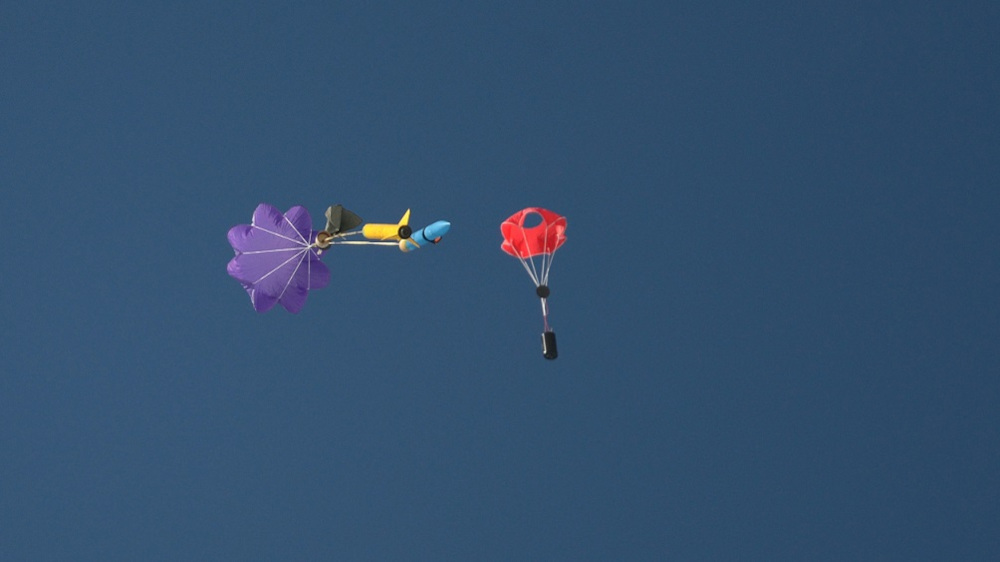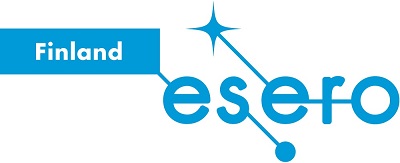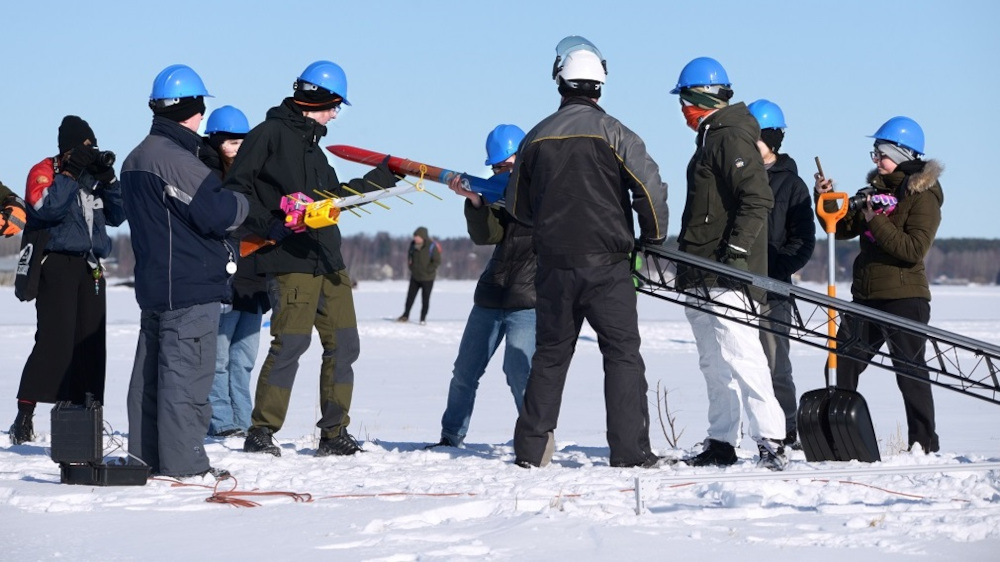
ESERO Finland aims to develop Finnish science and technology expertise
ESERO (European Space Education Resource Office) is the European Space Agency ESA’s most important channel for supporting science education in schools. ESERO activities promote scientific learning and increase interest toward space sciences and technology.
Space is fascinating, it attracts general interest, and its scientific and technological fields are part of our daily lives, for example through meteorological observation and positioning technology. Space is also approachable, and it inspires independent exploration and observation. The space sector will also bring to our knowledge up-to-date research data, innovations, and new technologies as well as the principles of sustainable development. The sector will therefore increase Finns' science capital, which refers to the sum of scientific understanding, attitudes, and skills that we accumulate throughout our lives.
For children and young people, the space sector highlights role models and educational paths and career opportunities. To support scientific learning, ESA coordinates the ESERO activities of its Member States. In more than twenty Member States, competence in STEM (Science, Technology, Engineering, Math) skills is developed through teacher training, school projects, competitions, learning materials and classroom activities and through awareness-raising events.
Teachers from early childhoold education and care to higher education institutions utilise the educational paths offered by ESERO Finland
Every year, ESEROs train an average of 50,000 European teachers and reach over 1.6 million students in science education activities. Finland's own ESERO Unit – ESERO Finland – was established in 2021. Before that, Finland was a Member of the Nordic-ESERO Community. The Finnish Science Centre Heureka coordinates ESERO Finland activities in Finland, and the Swedish-speaking dimension is co-ordinated by Åbo Akademi Skolresurs. Thanks to the extensive ESERO Finland network members, the activities are nationwide and bilingual.

In line with the objectives of ESA's Space for Education 2030 Programme (S4E 2030), ESERO Finland's phenomenon-based and multidisciplinary activities inspire towards space fields, strengthening scientific and technological skills. The activities boldly cross subject boundaries, encourage interaction, life-long learning, sustainable development and research-based knowledge and technology. The activities aimed for teachers extend from early childhood education to higher education institutions. Space-themed and inspiring events are organized for pupils, teachers, youngsters, and families. For pupils and students ESERO Finland offers attractive educational paths and career opportunities leading to the space sector and encourages young people to continue their studies and careers in the STEM fields.
Young people are inspired, for example, by school projects and national and international competitions. ESA's CanSat (can satellite) competition for 14-19-year-olds culminates annually in an international final competition. In collaboration with ESERO Finland's network, the Finnish CanSat-competition is held in Vaasa. Cansat is a fully functional model of a satellite, and it is built in a beverage can. With a miniature rocket, the CanSat is sent toward the Atmosphere to collect research-based observation data, such as temperature and atmospheric pressure.
The youngsters are responsible for all parts of the competition project: selection of the research task, sustainable appearance of the landing of the CanSat satellite, installation of parts and components, programming of measurements, data collection, preparation for launch and analysis of collected data. The Europe-wide CanSat competition develops young people's skills in performing STEM, craftsmanship, interaction, programming, and scientific research through project learning.

Young people send CanSat satellites toward the Atmosphere with miniature rockets (Photo: ESERO Finland)
ESERO Finland's phenomenon-based and multidisciplinary trainings for teachers cross subject boundaries, encourage sustainable development and strengthening the knowledge and skills of education professionals in science education and ICT. Space research extends widely to different sciences, the environment, the principles of ecological responsibility and technology education, thus linking it to the objectives of the curricula of different education levels is easy.
Earth observation training, for example, examines and observes the Earth's phenomena with the help of satellite images and research data related to monitoring Earth. The training increases understanding of the use of satellites as an observation tool, provides information on weather, climate, and the impacts of climate change on glaciers, cultivated areas or algae blooms in the Gulf of Finland.
Interesting space-related events are available for all
ESERO Finland’s inspiring space-related events are targeted for all audiences. For example, a direct video call connection has been taken three times from the Science Centre Heureka to the International Space Station on Earth's orbit. In 2016, the call was answered by Finnish ancestry owning Astronaut Timothy Kopra and in December 2017 by the Italian Astronaut Paolo Nespoli. Last year, in December 2023, the Danish Astronaut Andreas Mogensen answered during the call questions sent in advance by Finnish schoolchildren about space and technology. At the space-themed events, the public is engaged in interaction with experts, space phenomena and technological implementations may be studied by experimenting, hands-on working and building, and scientific presentations and shows related to the theme will be presented.
ESERO Finland network includes Heureka, Åbo Akademi Skolresurs, Science Centre Tietomaa, University of Turku Science Centre, Joensuu Science Society/SciFest, Astronomical Association Ursa, Aalto-Junior, Arctic Astronautics, Kupla Productions, Science Education Association (Tiedeopetusyhdistys ry), Helsinki Observatory and Science Education Centre, Lappeenranta Juniversity, LUMA Centre Lapland, Arctic Centre and Arktikum Science Centre, LUMA Centre Pohjanmaa, Science Park Väisälä, Finnish Space Research Association and Taivo Productions. The project will be implemented with the support of ESA Education, Jenny and Antti Wihuri Fund and Magnus Ehrnrooth Foundation.
Jutta Kujasalo, M.Sc., Head of Programme Production at Science Centre Heureka, Delegate of ESA Advisory Committee on Education (ACE), former Coordinator at Nordic-ESERO National Point of Contact, and now ESERO Finland's initiator and responsible director
More information:
[email protected]
www.esero.fi
European Space Education Resource Office
The European Space Agency
Edugalaxen




